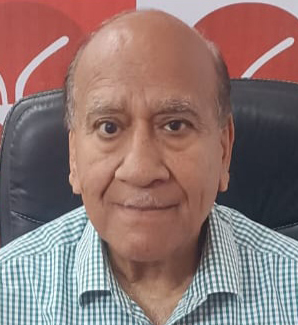news details |
|
|
| Art 3 empowers Parliament to create new States without dissolving Assembly: Rattan Lal | | |  Early Times Report Early Times Report
JAMMU, July 3: Advocate Rattan Lal Gupta, Provincial President of Jammu & Kashmir National Conference, has strongly dismissed speculative media narratives suggesting that fresh Assembly elections would be mandatory following the restoration of statehood to Jammu and Kashmir.
In a statement issued here today, the senior NC leader termed these assumptions as "constitutionally unfounded and democratically misleading."
He was responding to recent remarks by the Chief Minister Omar Abdullah, who stated he has no objection to dissolving the current Assembly if statehood is restored. While welcoming Omar Abdullah's statement, he clarified that "dissolution of the Assembly is not a constitutional compulsion, but rather a political choice."
Citing the constitutional framework, Rattan Lal Gupta emphasized that the reorganisation of states and Union Territories is governed by Article 3 of the Constitution of India, which empowers Parliament to create new states, alter boundaries, or change the status of existing territories. It was under this provision that the Jammu and Kashmir Reorganisation Act, 2019 was passed-leading to the bifurcation of the erstwhile state into two UTs: Jammu and Kashmir (with a legislature) and Ladakh (without a legislature).
"The Constitution does not mandate the dissolution of a UT's Legislative Assembly while elevating it to statehood," he said, adding "Parliament can simply amend the existing Act to convert the UT back into a state, without disbanding the present Assembly. Legally. If government of India would introduce a reorganization bill in parliament changes the status from UT to State, defines thereby the structure of legislature, governance and transition provisions, then parliament can choose to continue the existing Assembly as the first legislative Assembly of the new State of J&K.
Drawing historical context, the senior NC leader pointed out the 1987 example of Goa, where the UT was granted statehood and its legislature continued briefly before being dissolved for fresh elections. "Even then, there was no constitutional obligation-only a political will to start afresh under new circumstances," he said.
On the larger question of statehood restoration, Rattan Lal Gupta expressed concern over the continued delay despite repeated assurances from the Centre. "The Government at the Centre keeps saying statehood will be restored at an appropriate time, but now it is the most appropriate time to restore statehood to J&K, he said.
Highlighting the return of peace and normalcy in the region, he noted, "We've had record-breaking tourist footfall, successful conduct of the G20 summit, a smooth Amarnath Yatra underway, etc. What further evidence does the Centre require to acknowledge normalcy and restore the democratic dignity of J&K?"
The Provincial President asserted that the current J&K Assembly-elected under the UT structure-still represents the people's will and should not be undermined by speculative narratives. "This is the people's government. And the law allows for its continuation even as Jammu and Kashmir transitions back to full-fledged statehood. |
|
|
|
|
|
|
|
|
|
|
|
|
| |
| |
|
|
|
|
 |
|
|
